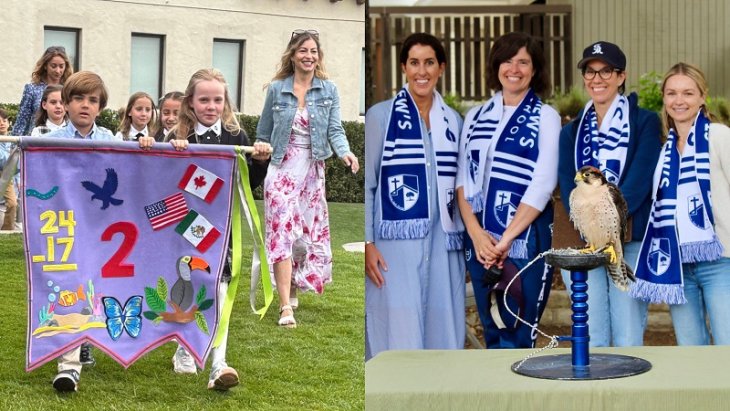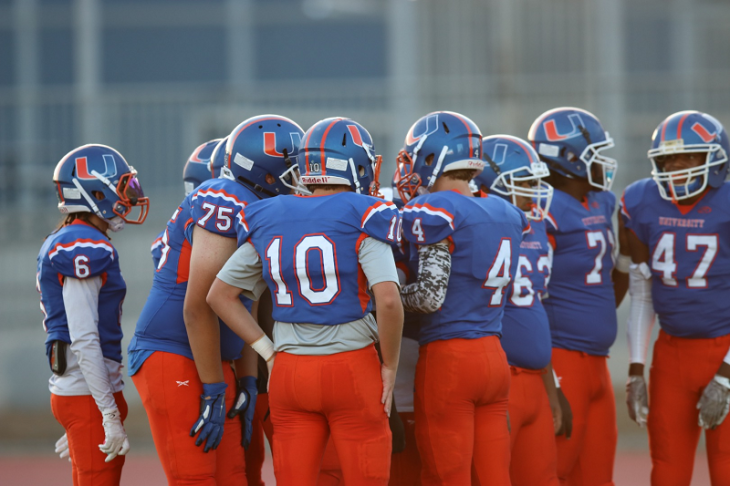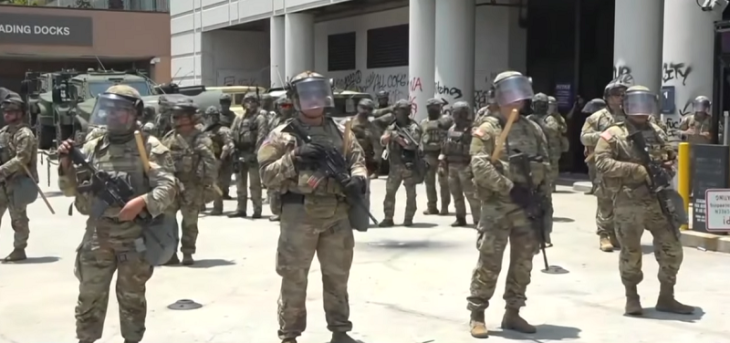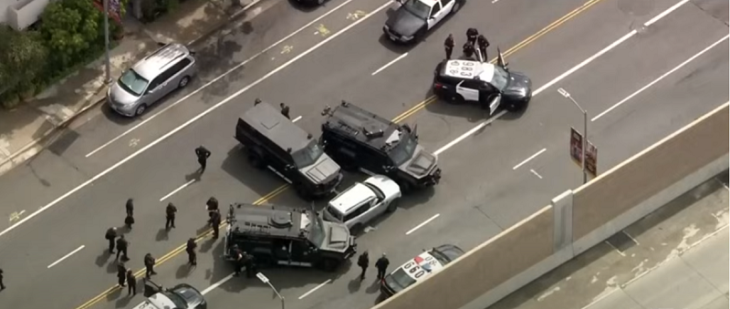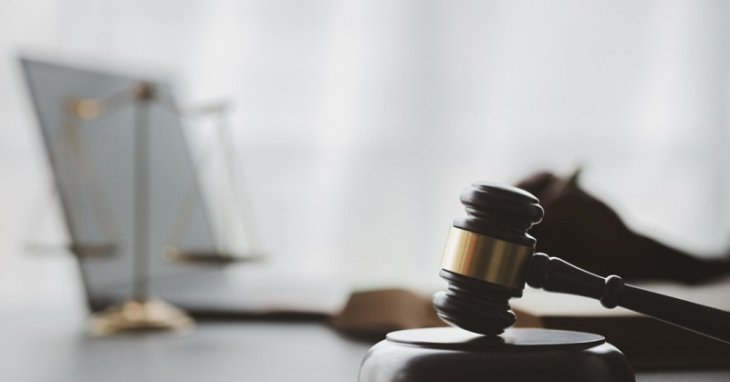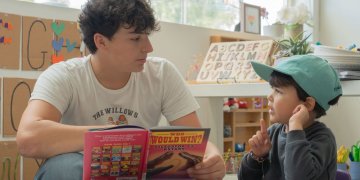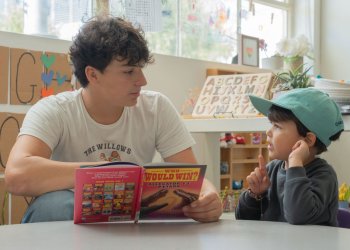
The crystal chandeliers in the Grand Ballroom of Century City’s Hotel Intercontinental were not confused to be crystal balls, but that did not prevent a handful of academics, business leaders, and government officials try to predict the future of the Empire of the Sun at the Japan in 2014 Symposium held Feb. 13.
The daylong event featured discussions of the state of the Japanese economy and the outlook and upcoming trends of Japanese companies in the United States.
Anchoring the symposium was a reflective conversation between the top diplomats representing the U.S. and Japan in each other’s countries, with U.C. Berkeley professor of political science Steven K. Vogel moderating the conversation between Ambassadors Ichiro Fujisaki and John V. Roos.
Both ambassadors, who had recently finished their respective services to Japan and the United States, spent most of their two-hour discussion reflecting on the work they did as a chief diplomat. However, both Fujisaki and Roos stressed how important a role the ambassadorship plays in shaping the foreign policy decision of the country they represent.
Roos, who was succeed by Caroline Kennedy when he retired in August 2013, added there is also a balancing act of maintaining protocol with the White House and the ambassador’s own views influence conversations behind the scenes.
“We should be advocates for policy decisions,” Roos said. “On the flip side, you are also … the representative of the [U.S.] President in Japan, so I would articulate what the President was thinking.”
Fujisaki added building a network was a key factor in advancing foreign policy decisions.
“What is important is you are on the ground and interacting with people,” the former Japanese ambassador to the United States, who retired in 2012, said.
While both Fujisaki and Roos bantered about the some of the privileges they enjoyed as a chief diplomat and the advice they would give their respective predecessors, both ambassadors also talked about the American military presence in Japan and regional security.
When asked whether the United States would build up its naval presence in Japan, Roos said his country should err on keeping our military in the area to a minimum.
“Japan is our most important ally in the Asia Pacific region. That doesn’t mean there aren’t issues, [but] we need to reduce our military presences [in places such as] Okinawa,” Roos said.
Roos, who was the first U.S. ambassador to visit Hiroshima, added Japan should play a greater role in influencing policy beyond its own region. The former U.S. ambassador to Japan cited the island nation’s roles in imposing sanctions on Iran for its nuclear policy as an example of the influence of the East Asian country.
Meanwhile, Fujisaki addressed questions about its relations with China and the Koreas.
“I’m not trying to be anti-Chinese. We should be friends,” Fujisaki said of China-Japan relations, adding Japan should maintain its defensive policy and be “careful of incorporating an ‘offensive’ policy.”
On the topic of North Korea, Roos stated the international community should continue imposing sanctions on the militarized country.
Fujisaki added North Korea’s predictability allows for the international community to easier understand its foreign policy strategies.
“This is one of the most predictable countries. They can’t change much [as a country moving forward],” Fujisaki said. “North Korea’s primary goal is survival. No changes will happen unless something drastic changes inside.”
In discussing the northern territories dispute with Russia, Fujisaki said there are several “delicate” issues that will take “a long time to resolve.”
Both men also touched upon the 1960 security treaty between Japan and the United States and potential territorial disputes the East Asian island nation and China.
Under Article 5 of the security treaty, the United States could be required to come to Japan’s aid if the latter were attacked. China and Japan are reportedly engaged in a debate of sovereign control of uninhabited islands in the East China Sea.
Roos stated the United States is in a difficult position to intervene and mediate a solution.
Earlier in the afternoon, economics professor Fukunari Kimura of Keio University and Richard Katz of The Oriental Economist Report provided perspectives on the Japanese economy in a discussion moderated by Gene Park, an assistant professor of political science at Loyola Marymount University.
The panel discussed Japan’s labor dichotomy of “lifelong employment” versus “irregular workers.” In Japan, some companies are loyal to its respective employees and offer them employment for life, similar to a tenured professor at a university. Irregular workers are similar to seasonal employees.
Katz said current Japanese Prime Minister Shinzo Abe, who campaigned as a reformer prior to taking office, is not engaging in enough reform policy to change Japan’s workplace growth, hence limiting the country’s economic growth. However, Kimura said Abe has been making significant progress with is reform agenda and the workplace culture is indeed changing.
Later, Katz said financial growth in Japan is very low right now and opined Abe should focus on reviving the Japanese economy. Also observing Japan is not the next Greece, Katz said Japan should take a cue from South Korea, which has become almost level, economically speaking, with the island nation in a short time span because of how well it embraced globalization.
The second panel featured Toyota Motor Sales executive chairman Yoshimi Inaba, Mitsubishi Electric U.S. president and CEO Katsuya Takamiya, and Mistubishi Corp. (Americas) vice president and general manager Ryuji Watanabe.
A discussion moderated by Saori N. Katada, an associate professor of international relations at University of Southern California, the trio of executives were optimistic of economic growth in the United States and plan to maintain Toyota’s and Mitsubishi’s presence here.
“We are very optimistic about the U.S.A.,” Inaba said. “This is a country you can rely upon. This is a great country to do business.”
Watanabe agreed, adding the strength of the U.S. economy “is being restored.”
Takamiya added he hoped the United States would make it a little cheaper to do business here.
Japan America Society of Southern California (JASSC) and Japan Business Association of Southern California were the event’s presenters. The Sasakawa Peace Foundation USA provided both presenters with a grant to organize the event.









